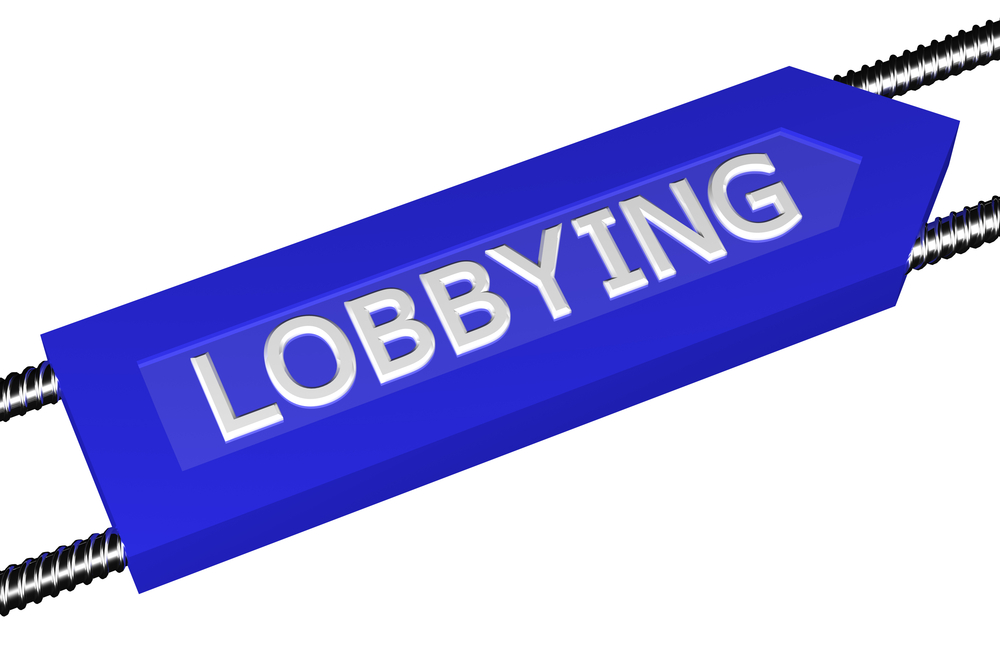Treating All Lobbying the Same may not be the Best Policy

Please note that we are not authorised to provide any investment advice. The content on this page is for information purposes only.
Lobbying is often seen as a dirty business – a profession of backroom deals that promotes immoral special interests to the greedy. Therefore, you might be tempted to cheer a new anti-lobbying rule that is about to come into effect, banning public money from being used for lobbying in the UK. Scotland is also debating slightly more stringent lobbying rules of its own.
Yet not all lobbying is the same, and it is not always dodgy. By tarnishing all lobbying with the same brush, we could be in for badly informed public policy.
Lobbying is often seen as a dirty business – a profession of backroom deals that promotes immoral special interests to the greedy. Therefore, you might be tempted to cheer a new anti-lobbying rule that is about to come into effect, banning public money from being used for lobbying in the UK. Scotland is also debating slightly more stringent lobbying rules of its own.
Yet not all lobbying is the same, and it is not always dodgy. By tarnishing all lobbying with the same brush, we could be in for badly informed public policy.
The rule in question is a new clause that must be inserted into government grant agreements from May. It will stop payments of public money “that support activity intended to influence or attempt to influence parliament, government or political parties … or attempting to influence legislative or regulatory action”. The government seems to have bought into the popular view that lobbying is morally suspect, and is categorically contrary to “improving people’s lives and [promoting] good causes.”
This is bunkum, and the government should know better. In fact, lobbying can serve the public interest: there is a good argument to be made for allowing public funds to be used for lobbying, under certain circumstances.
The new regulation’s lax wording also poses a specific threat to academic freedom as the higher education scholar Peter Scott has argued cogently. Academics are already on the case to defend their independence, and a petition is gaining momentum calling for a change to the wording to fix this particular problem. There are fears that it could prevent academics who receive government research funding from speaking freely to ministers.
However, there are three more general problems with the new rule, both conceptually and pragmatically.
Legitimate enterprise
First, lobbying is an essential part of a pluralist society and it should therefore be considered legitimate. Parties who may be affected by a particular change in policy or law must be able to express their views: this leads to more legitimate rules. It even helps safeguard democracy, as citizens can be involved in the laws that govern them. It is therefore false to assume that public funding for “sock puppets” (the government’s term for some pressure groups) is categorically against the public interest.
It is entirely within the scope of a charity for it to both provide specific services to individuals and to lobby government for policies that reduce the need for their services in the first place. Such lobbying may be inconvenient for government, but it can hardly be considered to be against the public interest. There is therefore nothing wrong, per se, with public money being given to organisations that will then seek to influence public policy.
Buying influence? Howard Lake, CC BY-SA
Lobbying can also result in better public policy: policy-making requires expertise that government departments often lack. Think of the expertise needed to generate good technical standards for new cars, or to make specific funding decisions to meet international development priorities. Abolish lobbying and public authorities would have to generate all the expertise needed for making meaningful public policy decisions by themselves.
Pragmatically, it may even be more efficient and so desirable for government to enable the people and organisations affected by a new law to provide expertise rather than acquire it in some other manner.
The key is for civil servants and politicians to get good information from a variety of sources. The problem is not with lobbying, but with unethical lobbying – yet the new regulation does nothing to address that problem.
Informal access
Second, lobbying is hard to define or regulate precisely. For purposes of the new funding rule, the government has defined lobbying as influencing public policy, or trying to do so. Formal meetings attended by registered lobbyists clearly constitute lobbying. However, what about a brief chat at a charity fundraising event, or in a corporate box at Ascot, over a glass of wine? What about this article?
Without a much clearer idea of what constitutes lobbying – and indeed a forensic analysis of organisations’ opportunities to engage in lobbying –, it becomes impossible to fairly enforce the funding rule. Those with good informal access to decision-makers continue to be able to (try to) influence public policy, while those without find it harder to engage. This is both unfair and leads to less-informed public policy.
Champagne, and informal power-broking, flows at Royal Ascot. EPA/LINDSEY PARNABY
Finally, removing public funding could have the pernicious effect of promoting imbalanced policy input, which may unfairly strengthen the voice of already-powerful organisations.
For example, when I worked in Brussels, it was not unusual for environmental non-governmental organisations to receive an operating grant from the European Commission’s environment department. The thinking was that stronger NGOs helped to provide a counterweight to the many privately funded corporate lobbyists. While this was less convenient for certain interests, it was better for society. Unless government decides to ban it outright, lobbying will continue, but under this new rule, it may well be less balanced.
The key question in “cleaning up” lobbying is how to promote legitimate, unimpeachable lobbying but eliminate socially irresponsible lobbying at the same time. Restricting public funding is clearly part of the solution, and the government should be applauded for making a start. However, it requires a more nuanced approach to work properly. The rule about to come into force is a case of trying to use a sledgehammer to crack a walnut.
New UK anti-lobbying rule misses the target in battle against the dark arts is republished with permission from The Conversation







